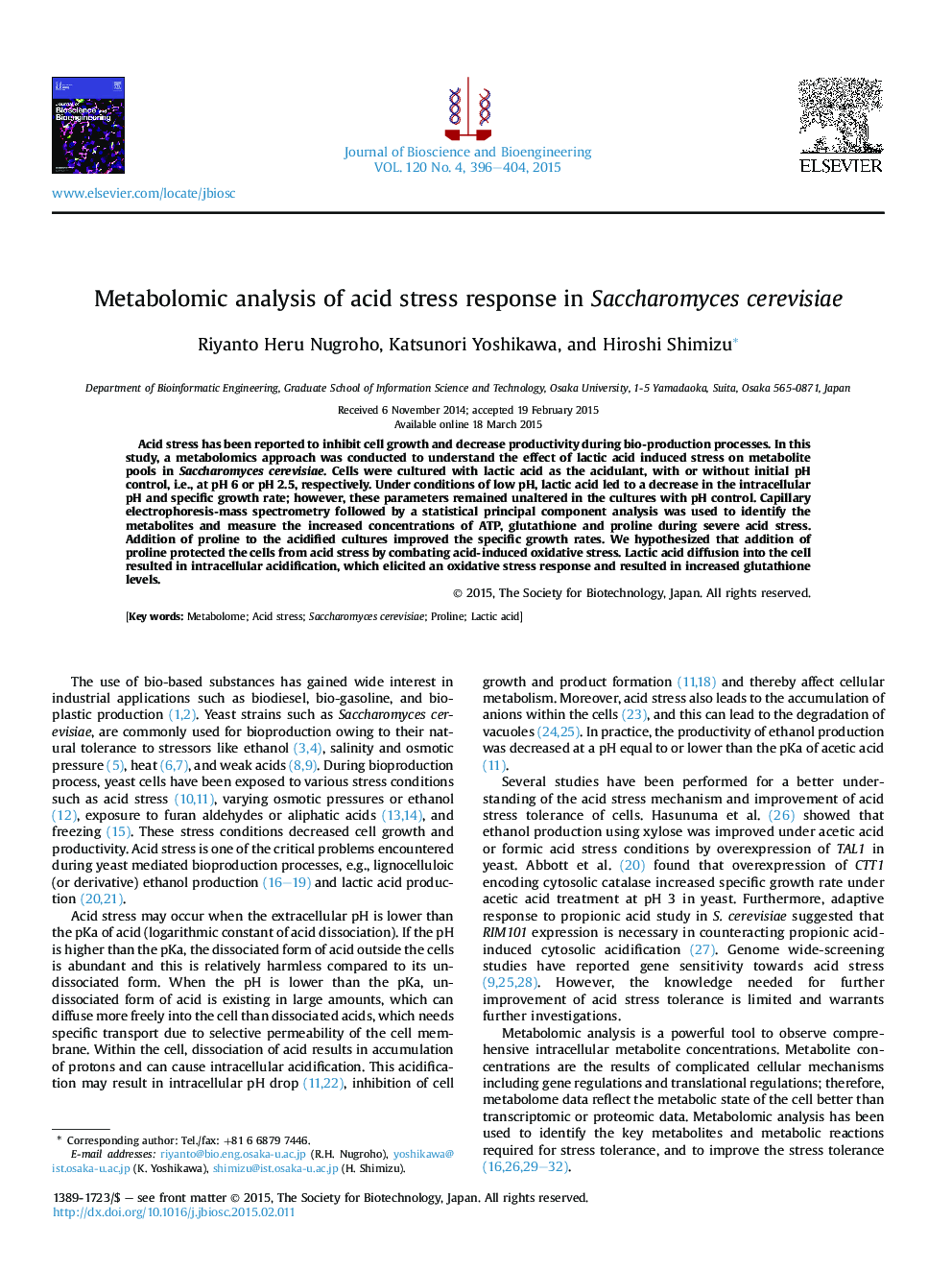| Article ID | Journal | Published Year | Pages | File Type |
|---|---|---|---|---|
| 20150 | Journal of Bioscience and Bioengineering | 2015 | 9 Pages |
Acid stress has been reported to inhibit cell growth and decrease productivity during bio-production processes. In this study, a metabolomics approach was conducted to understand the effect of lactic acid induced stress on metabolite pools in Saccharomyces cerevisiae. Cells were cultured with lactic acid as the acidulant, with or without initial pH control, i.e., at pH 6 or pH 2.5, respectively. Under conditions of low pH, lactic acid led to a decrease in the intracellular pH and specific growth rate; however, these parameters remained unaltered in the cultures with pH control. Capillary electrophoresis-mass spectrometry followed by a statistical principal component analysis was used to identify the metabolites and measure the increased concentrations of ATP, glutathione and proline during severe acid stress. Addition of proline to the acidified cultures improved the specific growth rates. We hypothesized that addition of proline protected the cells from acid stress by combating acid-induced oxidative stress. Lactic acid diffusion into the cell resulted in intracellular acidification, which elicited an oxidative stress response and resulted in increased glutathione levels.
